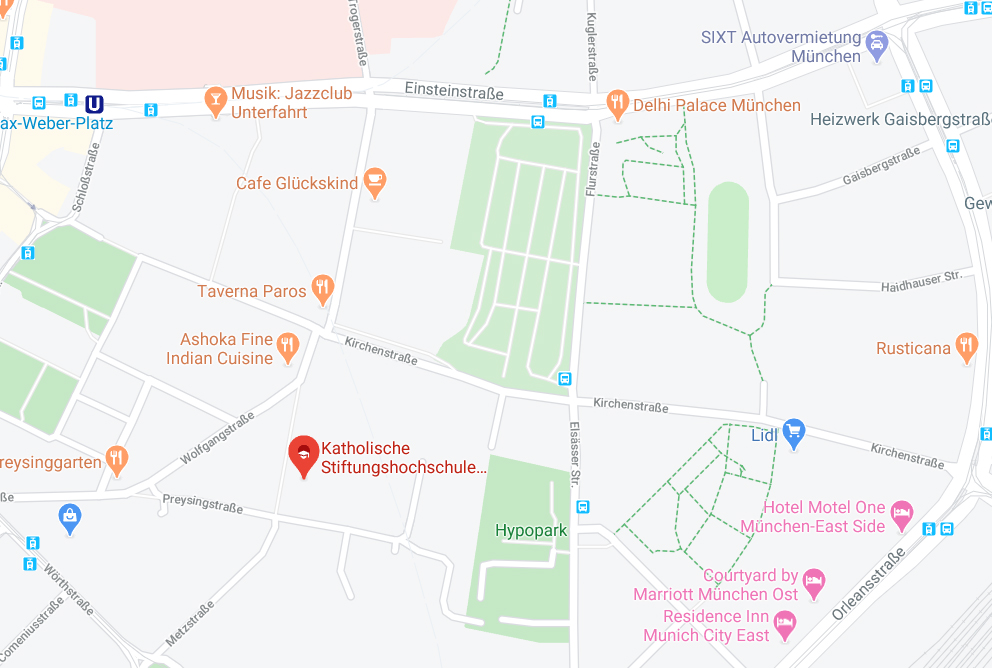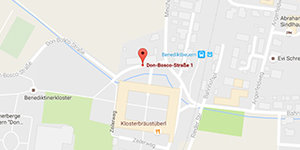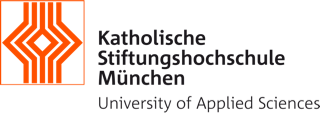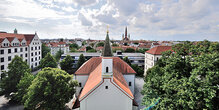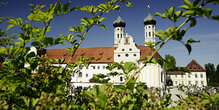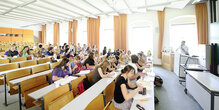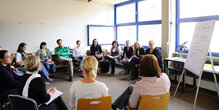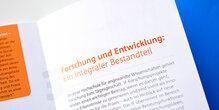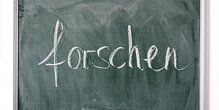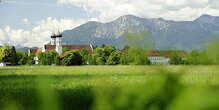Die Lehrangebote des Zentrums Natur Kunst Medien
Die Werkstätten stehen offen für Kooperationen mit PraxispartnerInnen und für Beiträge aus Profession und Öffentlichkeit. Studierende werden mit Problemstellungen aus der Praxis konfrontiert und erarbeiten mit ExpertInnen aus der Praxis anwendungsorientierte Lösungen. KooperationspartnerInnen erhalten die Möglichkeit, innovative Modelle für aktuelle gesellschaftliche Anforderungen zu entwickeln.
Am Campus werden drei verschiedene Lern-Werkstätten bzw. LABs angeboten:
NachhaltigkeisLAB
LAB: Natur-Land-Wirtschaft
Der Umgang mit der Umwelt, der Verbrauch natürlicher Ressourcen, die Produktion von Lebensmitteln – all das muss sich grundlegend ändern, damit gesundes Leben auch weiterhin möglich ist. Als "Transformation" wird der Weg zu mehr Nachhaltigkeit in der (Land)Wirtschaft bezeichnet. In dem LAB werden grundlegende Überlegungen zu Nachhaltigkeit und Transformation behandelt und in einem zweiten Schritt regionale Initiativen für mehr Nachhaltigkeit untersucht.
Medienwerkstatt
Offene Medienwerkstatt – Learning LABS und Blended Learning
Die Offene Medienwerkstatt steht allen Angehörigen der Hochschule und interessierten PraxispartnerInnen als Experimentier-Raum offen. Sie findet Anwendung in den Bachelor- und Masterstudiengängen, sowie in der beruflichen Weiterbildung (IF). Ein Schwerpunkt liegt auf der Förderung von Teilhabe und Partizipation in, mit und durch Medien in den unterschiedlichen Arbeitsfeldern von Bildung und Sozialer Arbeit.
Gemeinsam mit PartnerInnen aus der Praxis werden konkrete Wege digitaler Inklusion gesucht. In Learnings LABS werden innovative Herangehensweisen inklusiver Medienbildung für die Bildungs-Praxis erprobt, um AkteurInnen barrierefreie gesellschaftliche Partizipation zu ermöglichen. Der Schwerpunkt liegt auf dem Einsatz niederschwelliger mobiler (digitaler) Medien. Methodisch schließt die Offene Medienwerkstatt an die Didaktik der Offenen Werkstatt an: eigenverantwortliches Erproben und selbstgesteuertes Lernen stehen im Vordergrund.
KooperationspartnerInnen: Bayerischer Jugendring; Begegnung und Bewegung e.V.; Bildungshaus Langau; Caritasverband Bad-Tölz Wolfratshausen; Institut für Medienpädagogik in Forschung und Praxis München (JFF); Institut für Jugendarbeit Gauting; Lebenshilfe Starnberg; ; Lernort Herzogsägmühle; Partnerschaft für Demokratie, Kreisjugendring Garmisch-Partenkirchen e.V.; Offene Behindertenarbeit München.
Die MedientutorInnen des Medienbüros und Studierende am Campus beraten und unterstützen in methodischen und technischen Fragen.
Media LAB: Diversity & Media Literacy. Accessibility with, in and through Media
Summer Term 2024, Thursday 2-5.30 pm, every 2d week; Room: N028
Lecturer: Dr. Magdalena Lenker & Nico Wunderle, Collaboration: Nikolaus Gerold, Jana Moritz
Aims and content
The focus is on a project with practice partners in the fields of jouthwork. And also aims to critically question the concept of „accessibility " and to deal with "barriers in mind and heart".vMedia are communication space, leisure space, design space and educational space, and much more. At the same time, they not only overcome barriers, but can also create new ones. The participants are given the task of developing and implementing a project idea on how participation can be supported by means of media. The goal of the seminar project is to create awareness for inclusive and exclusive effects of media. The seminar introduces to the theory and practice of inclusive media education and its application in practical fields of education and social work. Teams of students with young people with disabilities identify barriers in, with and through media in fields of youth work and develop proposals for overcoming them. The focus is on the Bavarian Youth Ring's "Label Inclusion" project and the services offered by open disability support.
Ziele und Inhalte
Das Seminar zielt darauf ab, den Begriff der „Barriere(freiheit)“ in der Jugendarbeit kritisch zu hinterfragen und sich auch mit „Barrieren in Kopf und Herz“ auseinanderzusetzen, die bislang nicht als solche erkannt wurden. Medien sind Kommunikationsraum, Freizeitraum, Gestaltungsraum und Bildungsraum und vieles mehr. Gleichzeitig überwinden sie nicht nur Barrieren, sondern können auch neue Barrieren schaffen. Die TeilnehmerInnen erhalten die Aufgabe eine Projektidee zu entwickeln und umzusetzen, wie mittels Medien Partizipation unterstützt werden kann. Ziel des Seminar-Projekts ist es, ein Bewusstsein für inklusive und exklusive Wirkungen von Medien zu schaffen. Das Seminar gibt eine Einführung in Theorie und Praxis inklusiver Medienbildung und ihrer Anwendung in Praxisfeldern von Bildung und Sozialer Arbeit. Im Fokus steht die Verbindung von Diversity-+ Medienkompetenz an den Schnittfeldern von Inklusion und medienpädagogischer Praxis. Teams von Studierenden mit jungen Menschen mit Behinderungen identifizieren Barrieren in, mit und durch Medien in Feldern der Jugendarbeit und erarbeiten Vorschläge zu ihrer Überwindung. Im Fokus steht das Projekt des Bayerischen Jugendrings „Label Inklusion“ und die Angebote der Offenen Behindertenhilfe.
Kunstwerkstatt
LAB: Offene Kunstwerkstatt
Kreativität steht im Mittelpunkt der Offenen Kunstwerkstatt. Neue Gedankenräume werden eröffnet, Phantasie kann sich frei entfalten. Studierende entwickeln sich persönlich und erwerben wichtige Fähigkeiten für die spätere Anwendung in der Sozialen Arbeit. Die Werk- und Kreativräume sind modellhaft für alle Material- und Werkbereiche ausgestattet. Vor-zugsweise werden Natur- und Secondhandmaterialien verwendet. Es entstehen Werke mit konkretem Bezug auf unsere Umwelt, individuellem Ausdruck und exemplarischer Bedeutung. Besonders ist die Verknüpfung von Naturdingen mit digitalen Medien. Natur- und Recyclingmaterial wird neu bearbeitet und personalisiert. Laser und 3-D-Drucker finden hier unerwartete Anwendungen.
Öffnungszeiten: Jeden Donnerstag von 18.00 -22.00 Uhr (während der Vorlesungszeiten)
EthnoLAB: Cultural Sensitivity in Social Work and Education through Creative Ethnography – A practice-based approach.
Lecturers: Nikolaus Gerold & Dr. Oeendrila Lahiri Gerold
The three-day EthnoLAB aims at fostering theoretical and practical engagement with culturally sensitive social work and education via a creative and collaborative approach – including the people concerned – towards ethnographic methodology.
In a globalising world, social workers and educators increasingly work in culturally diverse populations and are likely to encounter ideas, practices and values they are unfamiliar with. Cultural sensitivity allows them to navigate those differences to help clients create a more sustainable way of life. It requires consciousness of sociocultural issues affecting practice and implies that social workers and educators do not only strive to understand differences from the perspective of the people they work with, but that they are also respectful and accepting of culturally specific ways of life.
In the EthnoLAB we will work towards improving the self-awareness of our own cultural identities and those of others, including our own privilege and power and their impact in our work with and on behalf of clients. We will also discuss ways how to develop specialised knowledge and understanding of the history, values and sociocultural practices of people we work with. Furthermore, the LAB will provide a collaborative space for developing particular skills and techniques that demonstrate an understanding of the importance of culture in practice. The first part of the workshop covers a general introduction to culturally sensitive social work and education, discusses core readings and exemplary studies and points out ethical challenges. Additionally, we will discuss methodological approaches – especially ethnographic methods – that can help us increase our cultural senstivity. Ethnographic research – especially the method of Participant Observation as well as other multisensory, multimodal and collaborative approaches – is intended to give us an in-depth understanding of people’s lived experience through the immersion of the ethnographer in the everyday settings of research participants. This caters to our need as social workers and educators to co-create with our clients and target groups sustainable ways of life that are grounded in their specific lifeworlds.
The second part provides participants with hands-on experience by experimenting with a set of creative ethnographic methods in order to explore cultural practices, ideas and barriers of everyday community participation of people with migration background in Benediktbeuern. The overall aim of this ethnographic ‚learning in dialogue‘ with the people concerned is to work towards the creation of cultural awareness, knowledge and skills for our endeavour as social workers and educators to develop sustainable forms of social participation and inclusion.
Die Lehrangebote des Zentrums Natur Kunst Medien
Die Werkstätten stehen offen für Kooperationen mit PraxispartnerInnen und für Beiträge aus Profession und Öffentlichkeit. Studierende werden mit Problemstellungen aus der Praxis konfrontiert und erarbeiten mit ExpertInnen aus der Praxis anwendungsorientierte Lösungen. KooperationspartnerInnen erhalten die Möglichkeit, innovative Modelle für aktuelle gesellschaftliche Anforderungen zu entwickeln.
Am Campus werden drei verschiedene Lern-Werkstätten bzw. LABs angeboten:
NachhaltigkeisLAB
LAB: Natur-Land-Wirtschaft
Der Umgang mit der Umwelt, der Verbrauch natürlicher Ressourcen, die Produktion von Lebensmitteln – all das muss sich grundlegend ändern, damit gesundes Leben auch weiterhin möglich ist. Als "Transformation" wird der Weg zu mehr Nachhaltigkeit in der (Land)Wirtschaft bezeichnet. In dem LAB werden grundlegende Überlegungen zu Nachhaltigkeit und Transformation behandelt und in einem zweiten Schritt regionale Initiativen für mehr Nachhaltigkeit untersucht.
Medienwerkstatt
Offene Medienwerkstatt – Learning LABS und Blended Learning
Die Offene Medienwerkstatt steht allen Angehörigen der Hochschule und interessierten PraxispartnerInnen als Experimentier-Raum offen. Sie findet Anwendung in den Bachelor- und Masterstudiengängen, sowie in der beruflichen Weiterbildung (IF). Ein Schwerpunkt liegt auf der Förderung von Teilhabe und Partizipation in, mit und durch Medien in den unterschiedlichen Arbeitsfeldern von Bildung und Sozialer Arbeit.
Gemeinsam mit PartnerInnen aus der Praxis werden konkrete Wege digitaler Inklusion gesucht. In Learnings LABS werden innovative Herangehensweisen inklusiver Medienbildung für die Bildungs-Praxis erprobt, um AkteurInnen barrierefreie gesellschaftliche Partizipation zu ermöglichen. Der Schwerpunkt liegt auf dem Einsatz niederschwelliger mobiler (digitaler) Medien. Methodisch schließt die Offene Medienwerkstatt an die Didaktik der Offenen Werkstatt an: eigenverantwortliches Erproben und selbstgesteuertes Lernen stehen im Vordergrund.
KooperationspartnerInnen: Bayerischer Jugendring; Begegnung und Bewegung e.V.; Bildungshaus Langau; Caritasverband Bad-Tölz Wolfratshausen; Institut für Medienpädagogik in Forschung und Praxis München (JFF); Institut für Jugendarbeit Gauting; Lebenshilfe Starnberg; ; Lernort Herzogsägmühle; Partnerschaft für Demokratie, Kreisjugendring Garmisch-Partenkirchen e.V.; Offene Behindertenarbeit München.
Die MedientutorInnen des Medienbüros und Studierende am Campus beraten und unterstützen in methodischen und technischen Fragen.
Media LAB: Diversity & Media Literacy. Accessibility with, in and through Media
Summer Term 2024, Thursday 2-5.30 pm, every 2d week; Room: N028
Lecturer: Dr. Magdalena Lenker & Nico Wunderle, Collaboration: Nikolaus Gerold, Jana Moritz
Aims and content
The focus is on a project with practice partners in the fields of jouthwork. And also aims to critically question the concept of „accessibility " and to deal with "barriers in mind and heart".vMedia are communication space, leisure space, design space and educational space, and much more. At the same time, they not only overcome barriers, but can also create new ones. The participants are given the task of developing and implementing a project idea on how participation can be supported by means of media. The goal of the seminar project is to create awareness for inclusive and exclusive effects of media. The seminar introduces to the theory and practice of inclusive media education and its application in practical fields of education and social work. Teams of students with young people with disabilities identify barriers in, with and through media in fields of youth work and develop proposals for overcoming them. The focus is on the Bavarian Youth Ring's "Label Inclusion" project and the services offered by open disability support.
Ziele und Inhalte
Das Seminar zielt darauf ab, den Begriff der „Barriere(freiheit)“ in der Jugendarbeit kritisch zu hinterfragen und sich auch mit „Barrieren in Kopf und Herz“ auseinanderzusetzen, die bislang nicht als solche erkannt wurden. Medien sind Kommunikationsraum, Freizeitraum, Gestaltungsraum und Bildungsraum und vieles mehr. Gleichzeitig überwinden sie nicht nur Barrieren, sondern können auch neue Barrieren schaffen. Die TeilnehmerInnen erhalten die Aufgabe eine Projektidee zu entwickeln und umzusetzen, wie mittels Medien Partizipation unterstützt werden kann. Ziel des Seminar-Projekts ist es, ein Bewusstsein für inklusive und exklusive Wirkungen von Medien zu schaffen. Das Seminar gibt eine Einführung in Theorie und Praxis inklusiver Medienbildung und ihrer Anwendung in Praxisfeldern von Bildung und Sozialer Arbeit. Im Fokus steht die Verbindung von Diversity-+ Medienkompetenz an den Schnittfeldern von Inklusion und medienpädagogischer Praxis. Teams von Studierenden mit jungen Menschen mit Behinderungen identifizieren Barrieren in, mit und durch Medien in Feldern der Jugendarbeit und erarbeiten Vorschläge zu ihrer Überwindung. Im Fokus steht das Projekt des Bayerischen Jugendrings „Label Inklusion“ und die Angebote der Offenen Behindertenhilfe.
Kunstwerkstatt
LAB: Offene Kunstwerkstatt
Kreativität steht im Mittelpunkt der Offenen Kunstwerkstatt. Neue Gedankenräume werden eröffnet, Phantasie kann sich frei entfalten. Studierende entwickeln sich persönlich und erwerben wichtige Fähigkeiten für die spätere Anwendung in der Sozialen Arbeit. Die Werk- und Kreativräume sind modellhaft für alle Material- und Werkbereiche ausgestattet. Vor-zugsweise werden Natur- und Secondhandmaterialien verwendet. Es entstehen Werke mit konkretem Bezug auf unsere Umwelt, individuellem Ausdruck und exemplarischer Bedeutung. Besonders ist die Verknüpfung von Naturdingen mit digitalen Medien. Natur- und Recyclingmaterial wird neu bearbeitet und personalisiert. Laser und 3-D-Drucker finden hier unerwartete Anwendungen.
Öffnungszeiten: Jeden Donnerstag von 18.00 -22.00 Uhr (während der Vorlesungszeiten)
EthnoLAB: Cultural Sensitivity in Social Work and Education through Creative Ethnography – A practice-based approach.
Lecturers: Nikolaus Gerold & Dr. Oeendrila Lahiri Gerold
The three-day EthnoLAB aims at fostering theoretical and practical engagement with culturally sensitive social work and education via a creative and collaborative approach – including the people concerned – towards ethnographic methodology.
In a globalising world, social workers and educators increasingly work in culturally diverse populations and are likely to encounter ideas, practices and values they are unfamiliar with. Cultural sensitivity allows them to navigate those differences to help clients create a more sustainable way of life. It requires consciousness of sociocultural issues affecting practice and implies that social workers and educators do not only strive to understand differences from the perspective of the people they work with, but that they are also respectful and accepting of culturally specific ways of life.
In the EthnoLAB we will work towards improving the self-awareness of our own cultural identities and those of others, including our own privilege and power and their impact in our work with and on behalf of clients. We will also discuss ways how to develop specialised knowledge and understanding of the history, values and sociocultural practices of people we work with. Furthermore, the LAB will provide a collaborative space for developing particular skills and techniques that demonstrate an understanding of the importance of culture in practice. The first part of the workshop covers a general introduction to culturally sensitive social work and education, discusses core readings and exemplary studies and points out ethical challenges. Additionally, we will discuss methodological approaches – especially ethnographic methods – that can help us increase our cultural senstivity. Ethnographic research – especially the method of Participant Observation as well as other multisensory, multimodal and collaborative approaches – is intended to give us an in-depth understanding of people’s lived experience through the immersion of the ethnographer in the everyday settings of research participants. This caters to our need as social workers and educators to co-create with our clients and target groups sustainable ways of life that are grounded in their specific lifeworlds.
The second part provides participants with hands-on experience by experimenting with a set of creative ethnographic methods in order to explore cultural practices, ideas and barriers of everyday community participation of people with migration background in Benediktbeuern. The overall aim of this ethnographic ‚learning in dialogue‘ with the people concerned is to work towards the creation of cultural awareness, knowledge and skills for our endeavour as social workers and educators to develop sustainable forms of social participation and inclusion.
